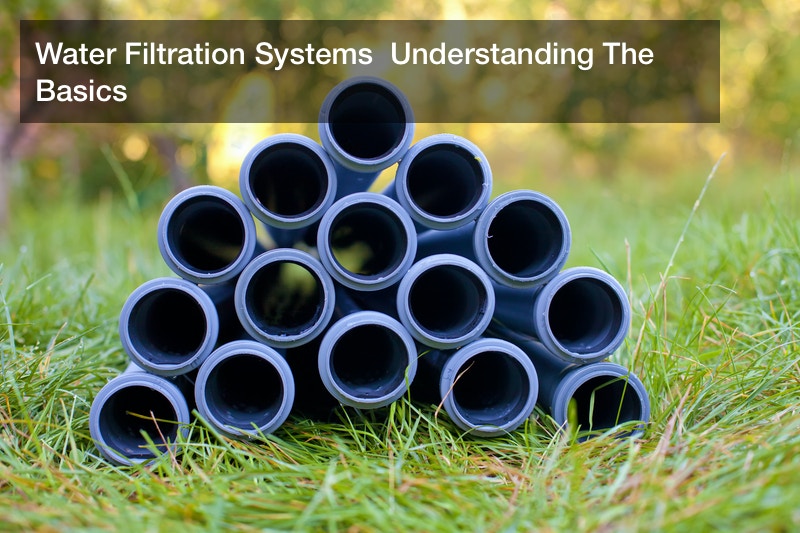
Updated 12/1/20
The basic process of purifying water can vary. For instance, boiling water can eliminate nearly all of the bacteria inside the water. Distillation has also been used to clean water. However, for the most part, the water system in most homes gets treated using the process of filtration. The process filtration removes particles of manganese, sediment, sulfur, and iron. If the water contains pesticides, chlorine, different organic compounds, or other harmful chemicals, the filtration system should also be able to eliminate them.
A filtration water treatment system can also make the water cleaner, since it will get rid of some of the bacteria found in the water. A mineral water system can help clean a household’s water supply very thoroughly. These systems may be able to remove contaminants that could still be present in tap water. Some samples of tap water might be cleaner than others initially, but a filtration system can clean the water consistently.
Many people have found that filtered water tastes better than unfiltered water. While water is technically flavorless, it can still have a slightly metallic taste when it isn’t completely clean. Tap water already gets treated and filtered before it reaches homes. When people are able to use filtration systems of their own, they’re able to get better water.
Did you know that the typical American uses about 100 gallons of water a day in their own home? You should feel able to use whatever amount of water you need — after all, we depend on water. But the fact is that many of waste water on a regular basis, or drink water that we shouldn’t, all due to a lack of efficient water filtration systems. Some people do in fact have home water treatment systems, but those systems might not be what they should be. Many people don’t even have whole home water filtration systems, simply because they believe that city water is already properly filtered. (And most Americans do drink city water in this day and age; though well water certainly isn’t immune from water filtration issues.) Just because water is technically “clean” doesn’t mean that you should be drinking it. The issue that can come up with all water is that while it’s clean, it can still be “hard”. Hardness is typically caused by high levels of magnesium and calcium, among other metals. If water has 0 to 60 milligrams of calcium per liter, it is classified as soft. 61 to 120 milligrams of calcium per liter means that water is moderately hard, while 121 to 180 milligrams per liter equals hard, and over 180 milligrams indicates very hard water. For this reason, over four in 10 Americans use home water distillers.
What Are The Best Whole Home Water Filtration Systems?
The best whole home water filtration systems are far cries from the typical water filters that you would attach to a single sink. In fact, the best whole home water filtration systems work in a way that purifies your entire water system. This is extremely important, as hard water doesn’t just affect you when you drink it. Hard water can also be harmful when absorbed through the skin during, for example, a shower. A whole home water treatment system isn’t necessarily going to be immediately visible; in fact, it may be a fairly subtle addition to your home. A typical water filter is a screen peppered with many microscopic holes. Usually, the smaller the holes the better — this will ensure the best possible filtration of contaminants. These holes are often measured in microns. When looking for filters, you’ll want to look for an absolute rating, which is indicative of the size of the holes, versus a nominal ratings, which is indicative of the average hole. The best whole home water filtration systems will have better absolute ratings, sometimes, than nominal ratings.
What Kinds Of Contaminants Can Affect My Water?
Again, a lot of us are probably more likely to have issues with hard water than water that is contaminated with disease. Remember that hard water is often filled with mineral salts, and this can gradually negatively affect your health over an extended period of time. With that being said, tap water can contain over 2,100 known contaminants, including several poisons. Don’t think that you’re immune to these toxins because you have well water; groundwater can contain contaminants as well, with a 2012 report from the National Research Council finding that it would take about $110 billion to clean all the contaminants from American groundwater. The great thing about filtration systems is that they essentially use reverse osmosis to clean your water in an efficient way. This can also result in a more efficient use of water, meaning less wasted water and money alike.
What Do I Need To Do To Maintain My Water Filtration System?
Your water filtration system will be a great tool, but it can’t do all of the work on its own. For example, an activated carbon filter system can become a breeding ground for bacteria if improperly maintained. If, for whatever reason, the filter has not been used for over five days it’s advisable that you run chlorinated water over it before using it again. This will ensure the best possible results.
Keywords:
1 inch whole house water filter, 10 ceramic filter, 10 x 4.5, 2 stage water filter system, 2 stage water purifier, 3 filter water system, 3 stage water purifier, 3m advanced whole house water filter for well water, 3m home water solutions review, 3m water filter review, 3m water solutions india review, 3m whole house water filter price india, 3m whole house water filtration system, 5 stage whole house water filtration system, absolute h2o uv 10 water purification system installation, alkaline water system for whole house, all in one water filtration system, aqua king 10 water filter, aqua pure water filter reviews, aquarena water filter, aquarena water system.
